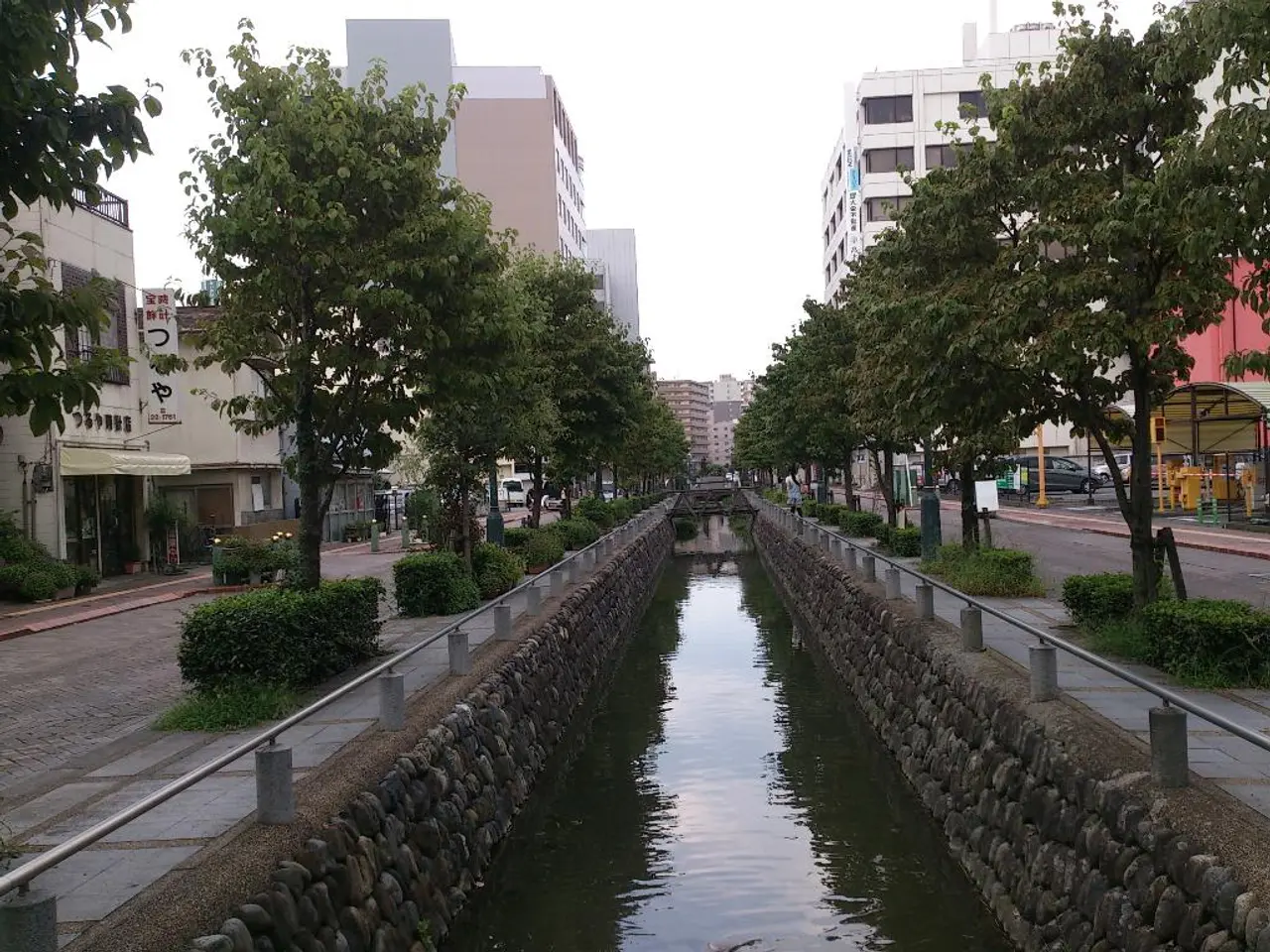China's Response to Egypt's Financial Turmoil Uncovered
In the midst of Egypt's ongoing economic struggles and geopolitical concerns, China is bolstering its financial commitments and expanding investments in the North African country. This strategic deepening of economic ties is evident in the recent surge of high-profile projects and collaborations across various sectors.
Egypt and China agreed to boost their economic cooperation in June 2025, focusing on electric vehicles, electronics, water desalination, solar energy, and artificial intelligence. To further stimulate Chinese investments, an investment promotion forum is planned in Egypt. Ongoing projects by Chinese firms, such as the Iconic Tower and Central Business District (CBD) in Egypt’s New Administrative Capital, the electric train, and renewable energy ventures, continue to be key parts of this cooperation. Chinese Commerce Minister Wang Wentao reaffirmed China as Egypt’s largest trading partner, with bilateral trade reaching $17 billion.
In the garment and textile industries, Egypt has secured nearly $70 million in fresh investments from Chinese companies. Chinese firms Zhejiang Holding and Jiangsu Haite Fashion Company have committed substantial funds to new plants and factories in Egypt’s free zones, targeting both African and international markets.
Chinese state-owned enterprises, primarily China State Construction Engineering Corporation (CSCEC), remain central to Egypt’s infrastructure development, particularly in building and managing the new capital city’s CBD, a $3.8 billion project. This cements China’s role as a pivotal infrastructure partner under the Belt and Road Initiative.
Egypt is actively promoting its strategic location and investment climate to attract Chinese investors, highlighting its adherence to World Trade Organization rules and ongoing efforts to improve the business environment. China has introduced a new tax credit policy offering a 10% tax credit on reinvested profits for overseas investors, further incentivizing Chinese firms to expand reinvestments abroad, including in countries like Egypt.
Despite these positive developments, some question the wisdom of Egypt's reliance on Chinese investments, particularly in the context of escalating US-China world power competition. However, a Chinese university expert in Egyptian studies maintains that China has strong reasons to maintain good economic, trade, and investment relationships with Egypt.
Egypt is currently seeking a bailout from the International Monetary Fund (IMF) and has received a US$ 3 billion loan under the Extended Fund Facility. The terms of the IMF deal can provide China with opportunities, not just issues. China Growth Bank will inject US$ 1 billion into the Egyptian economy, and the Chinese-dominated Eastern Infrastructure Investment Financial institution will add US$ 400 million.
Despite the economic challenges, Egypt is aiming to obtain US$ 500 million in Chinese yuan-dominated panda bonds. China is not ready to withdraw its financial investment in Egypt quickly, and Egypt is planning to sell some state-owned assets to private investors and list government-owned companies on the Egyptian Exchange.
The Egyptian economy has been impacted by the war in Ukraine, an essential source of wheat for Egypt before Russia's invasion. Amidst these challenges, China remains a steadfast partner, committed to making the China-Egypt Suez Economic and Trade Cooperation Area (SETC-Zone) and other significant cooperation projects a success. Chinese President Xi Jinping has reiterated his commitment to strengthening links, particularly on the transcontinental Belt and Road Campaign.
- Egypt's cooperation with China in the field of finance has resulted in Chinese firms investing significantly in the agricultural sector, with both Zhejiang Holding and Jiangsu Haite Fashion Company committing funds for new plants and factories in Egyptian free zones that target both African and international markets.
- Beyond finance and business, China State Construction Engineering Corporation (CSCEC) is central to Egypt's infrastructure development, particularly in the building and management of the new capital city's CBD, a $3.8 billion project, reinforcing China's role as a key infrastructure partner under the Belt and Road Initiative.
- Recognizing Egypt's strategic location and investment climate, China has introduced a tax credit policy offering a 10% tax credit on reinvested profits for overseas investors, further incentivizing Chinese firms to expand their investments beyond traditional sectors like finance and business, into sectors such as food production and renewable energy.




